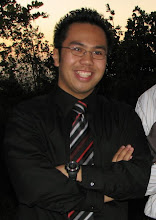 Above: I-95 Northbound near Brickell. An overhead shot of this strip was used in the TV series Miami Medical.
Above: I-95 Northbound near Brickell. An overhead shot of this strip was used in the TV series Miami Medical.FOLLOW-UP PATIENTS
ARE MY FAVORITE.
A patient that I saw a few days ago comes in for a follow-up. He/she looked excited to see me, and that brought a smile to my face. A firm, solid handshake confirmed the camaraderie. A few weeks ago, I saw this patient in a much different state, rather sick with severe pulmonary & cardiac symptoms. Earlier in the rotation, I said to myself that I hated the idea of moving on, and well here was another case of it. The last time i saw him/her, the patient had smoked for more than 20 years and didn't want to quit. Now, he/she was just starting to quit, and I was so proud of the initiative, I had to shake his/her hand. Gosh, I was about to build a good patient-doctor relationship here, and now I have to leave. I started to get to know the patient's family, culture and more, and I would have loved to see the progress that he/she was having to reclaiming his/her own life from smoking...
I'll admit that interaction today was a good ending to a wonderful rotation in Miami. My last two weeks were spent at a more conventional medical center in the Miami area. However, our attending taught us a lot of practicality in medicine while we went through it (why we avoid certain medications, the business aspects of medicine, and just to be more confident in what we do). Now, I know how it feels to start to "want to do everything." I got hooked to treating adults too. I'll admit, that its still early in the game for me, but I hope that a week on the road can give me some answers. Driving has always been my way to think deeply about all that goes around me... There are times I think so much that I just let the dashed white lines in the road come to a blur.
Road? Yup, I'm about to start on a mini-vacation, to be myself for a week (not a medical student), think on the road, and get ready for 12 weeks of Internal Medicine which will take place at Westlake Community Hospital near Chicago. Throughout my trip, I'll be seeing some time at campus I've been at (the University of Illinois and Indiana University), meeting a few folks that helped me to get where I am today, and exploring the world in ways that I haven't been before. It's going to be exciting. However, as much as I love to travel, I miss Chicago. It's my town, Chicago is.
Thank you Miami for a wonderful experience. May the travels begin.



